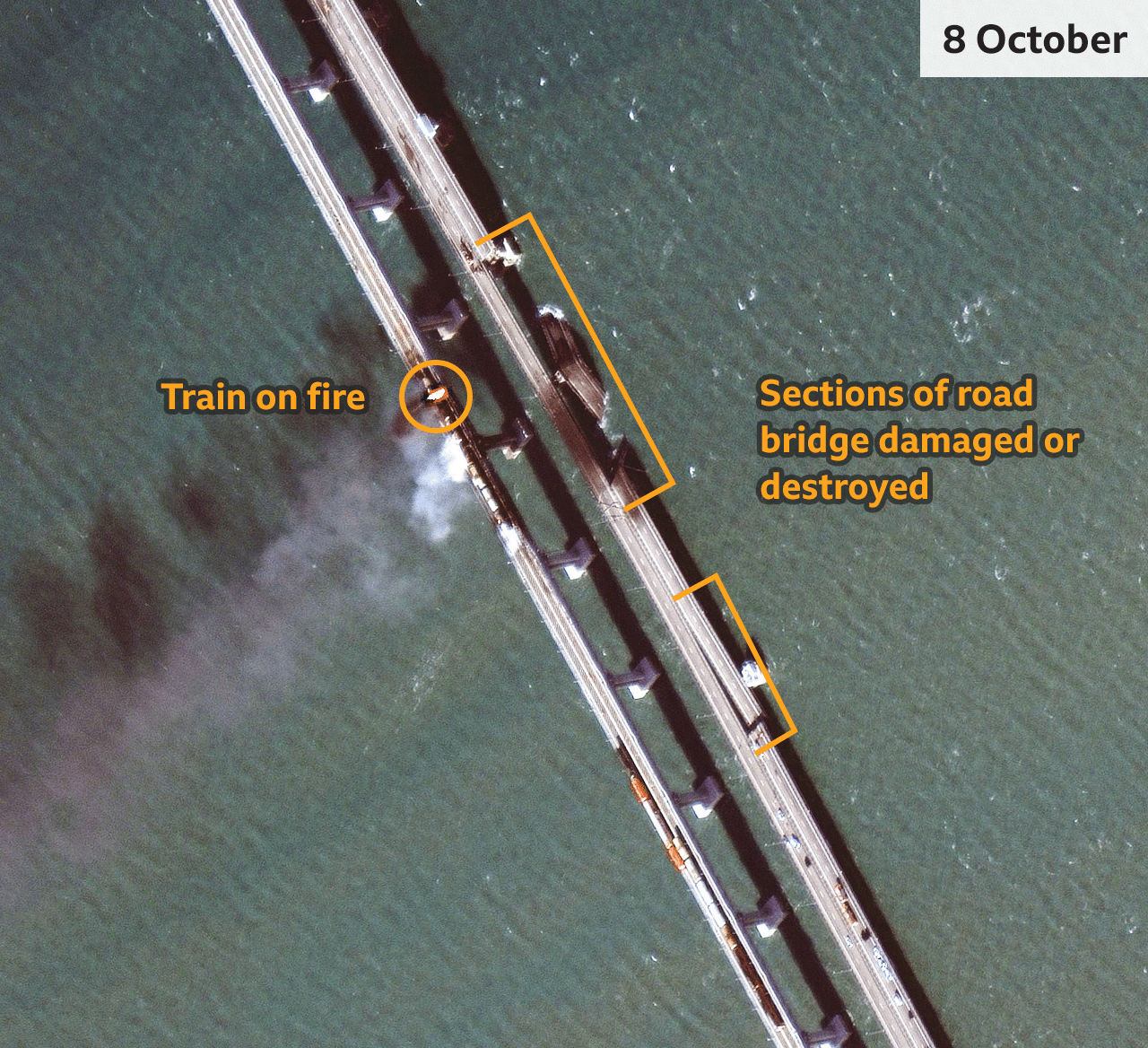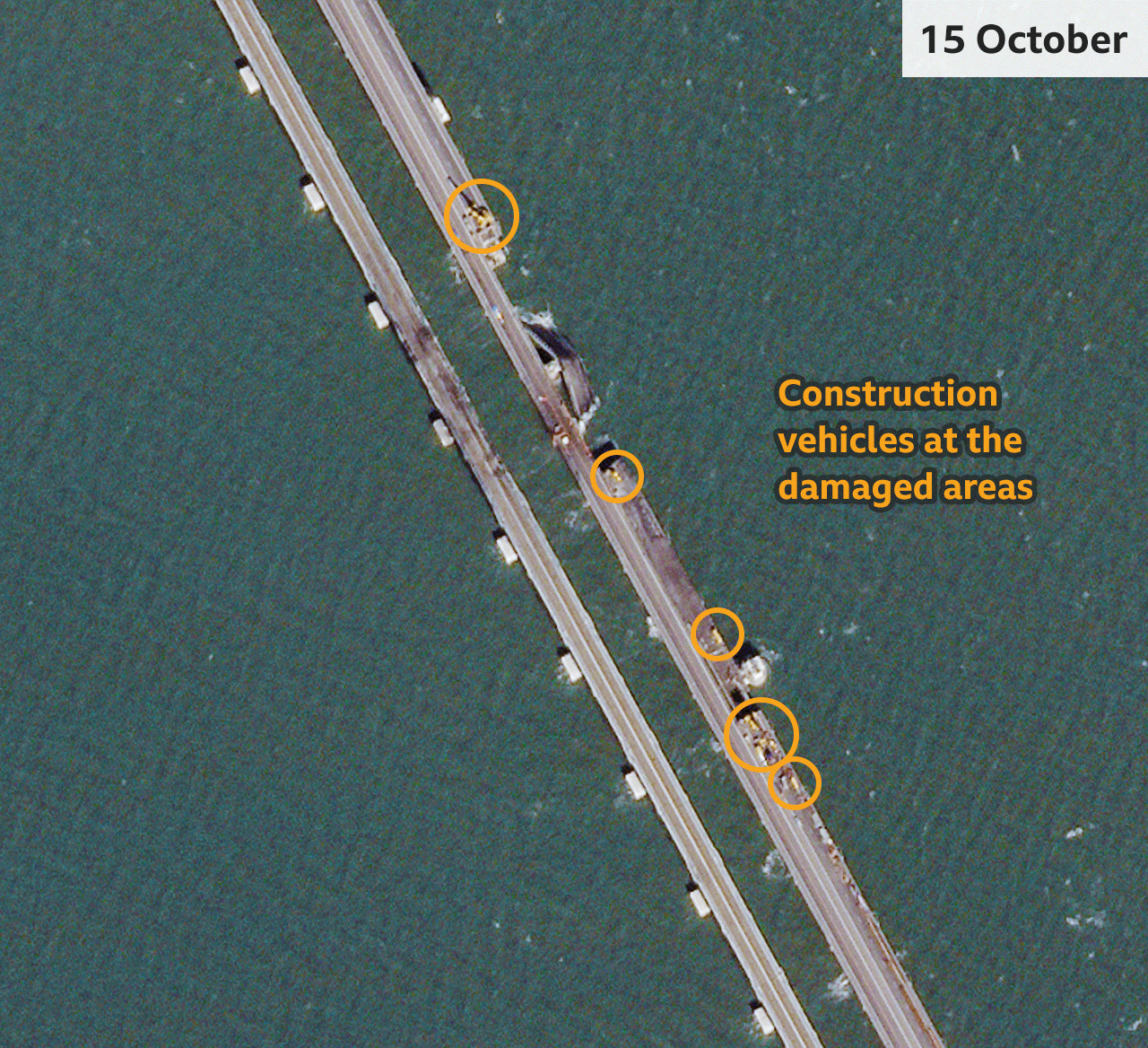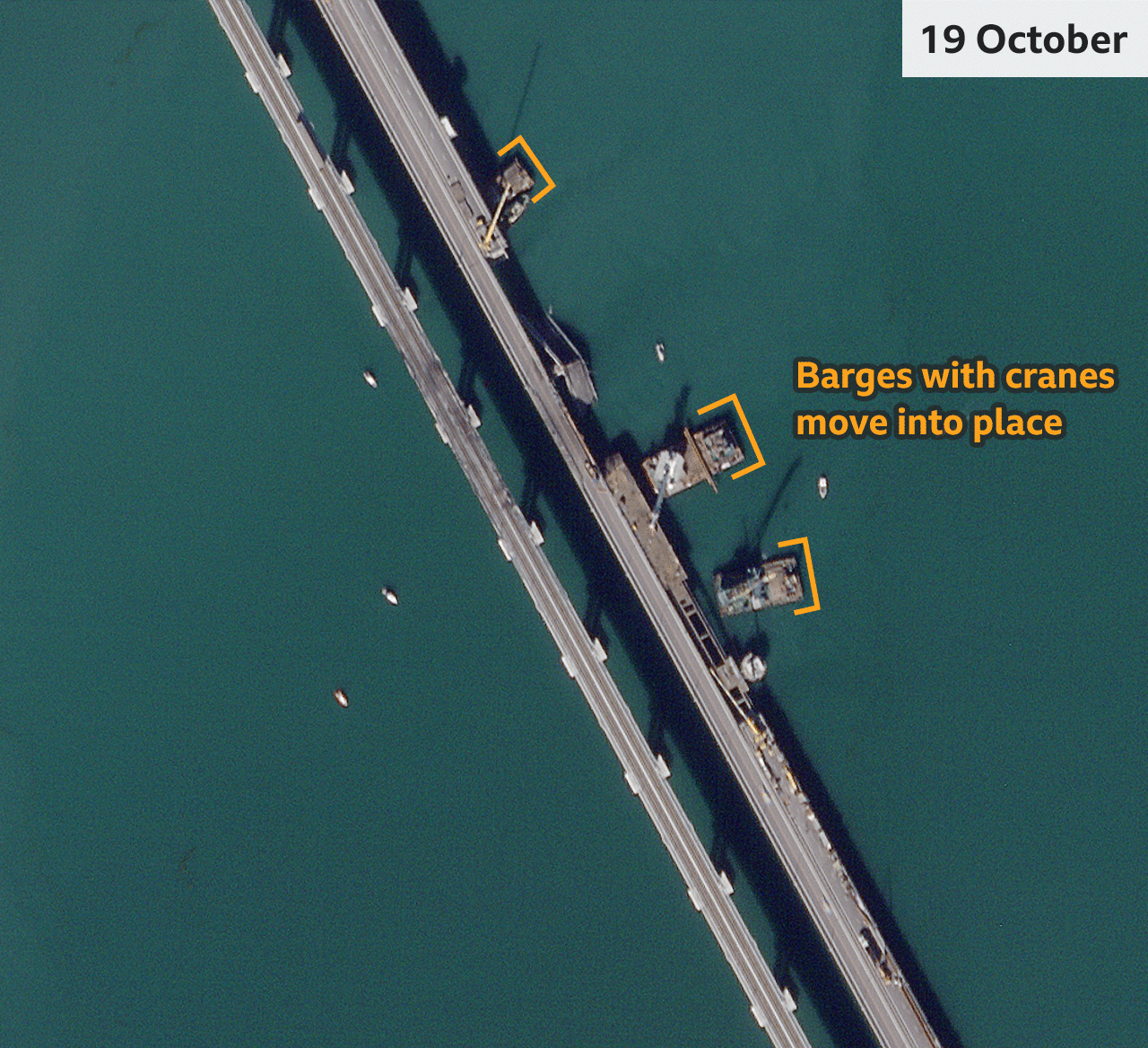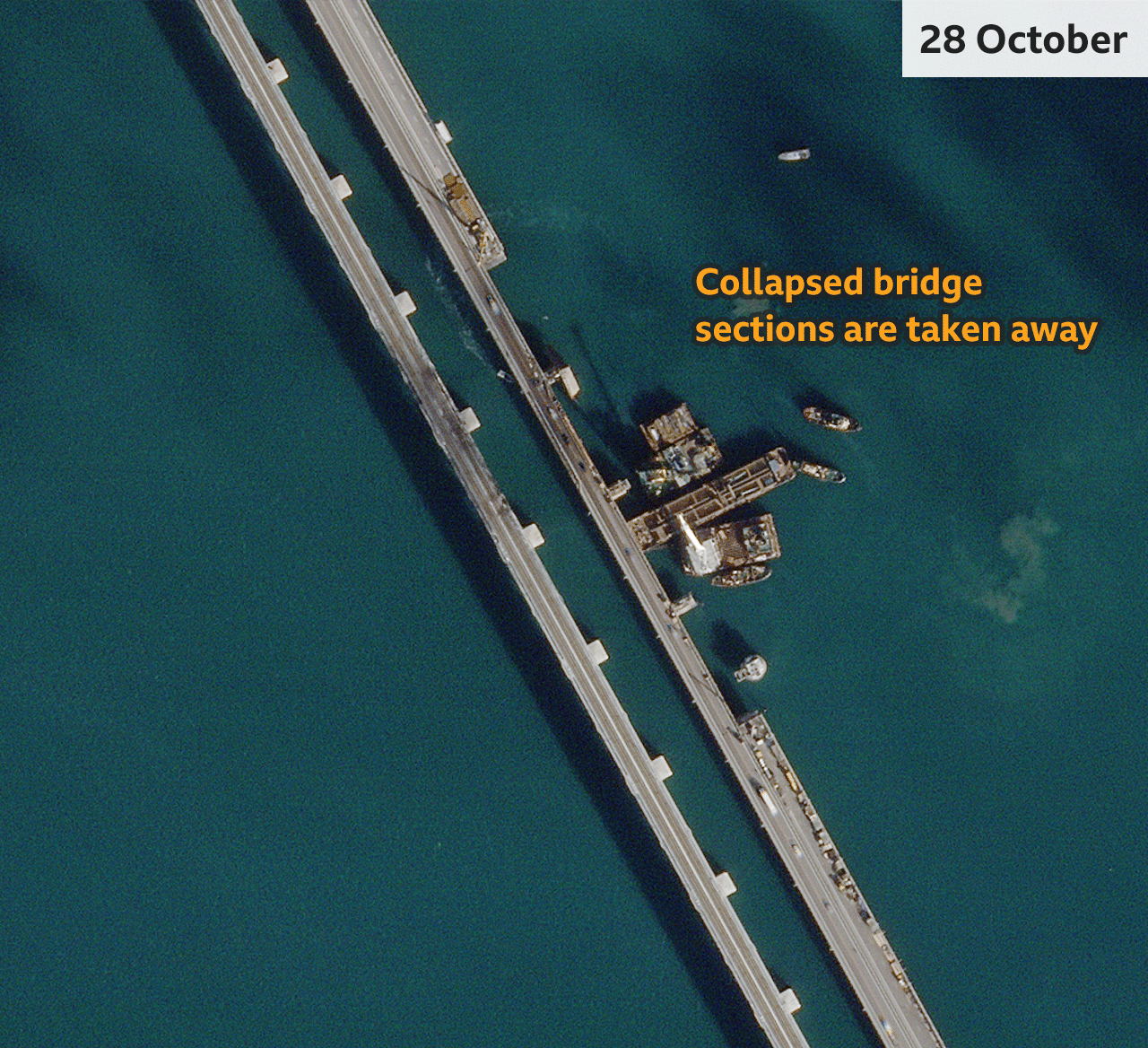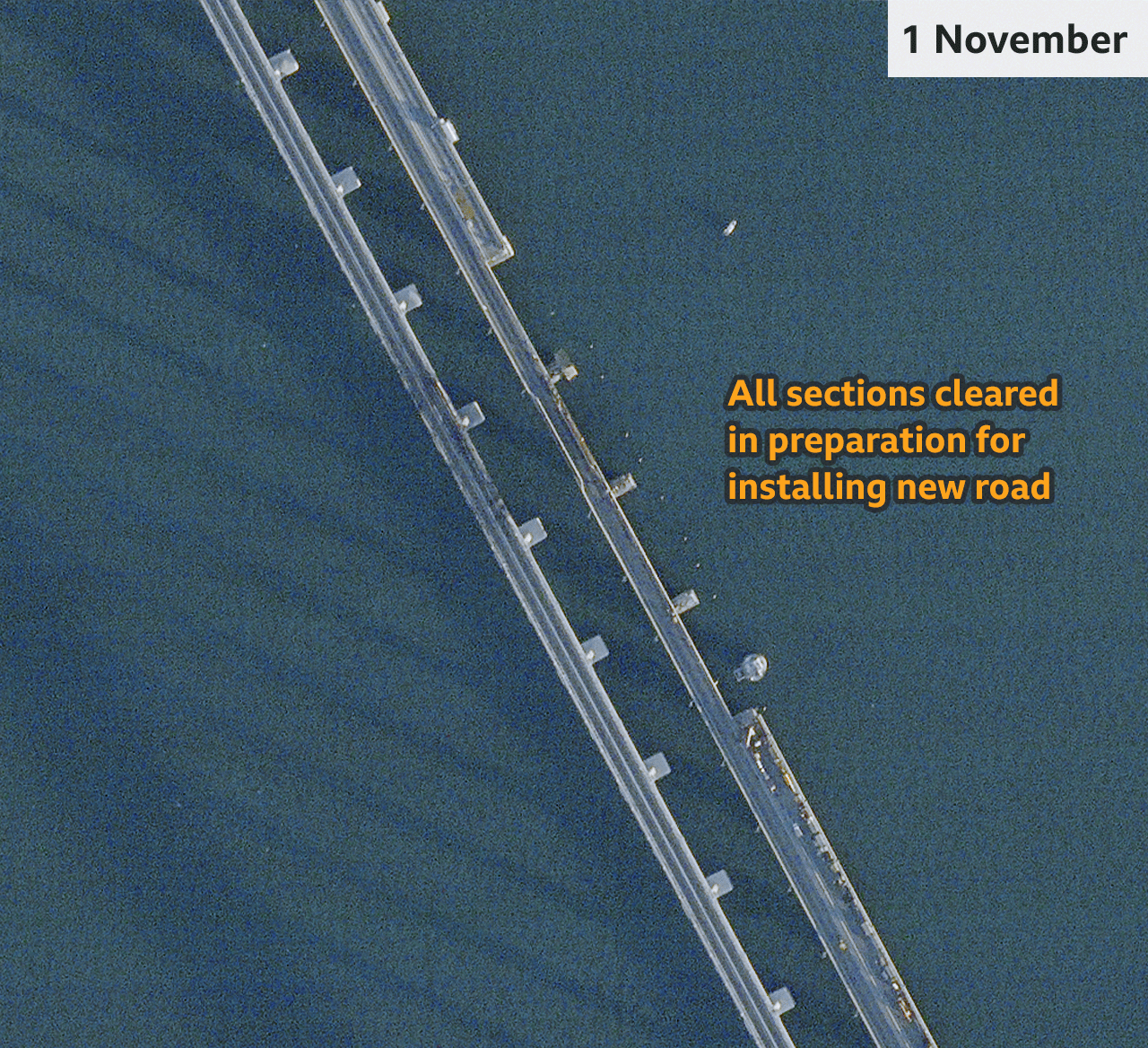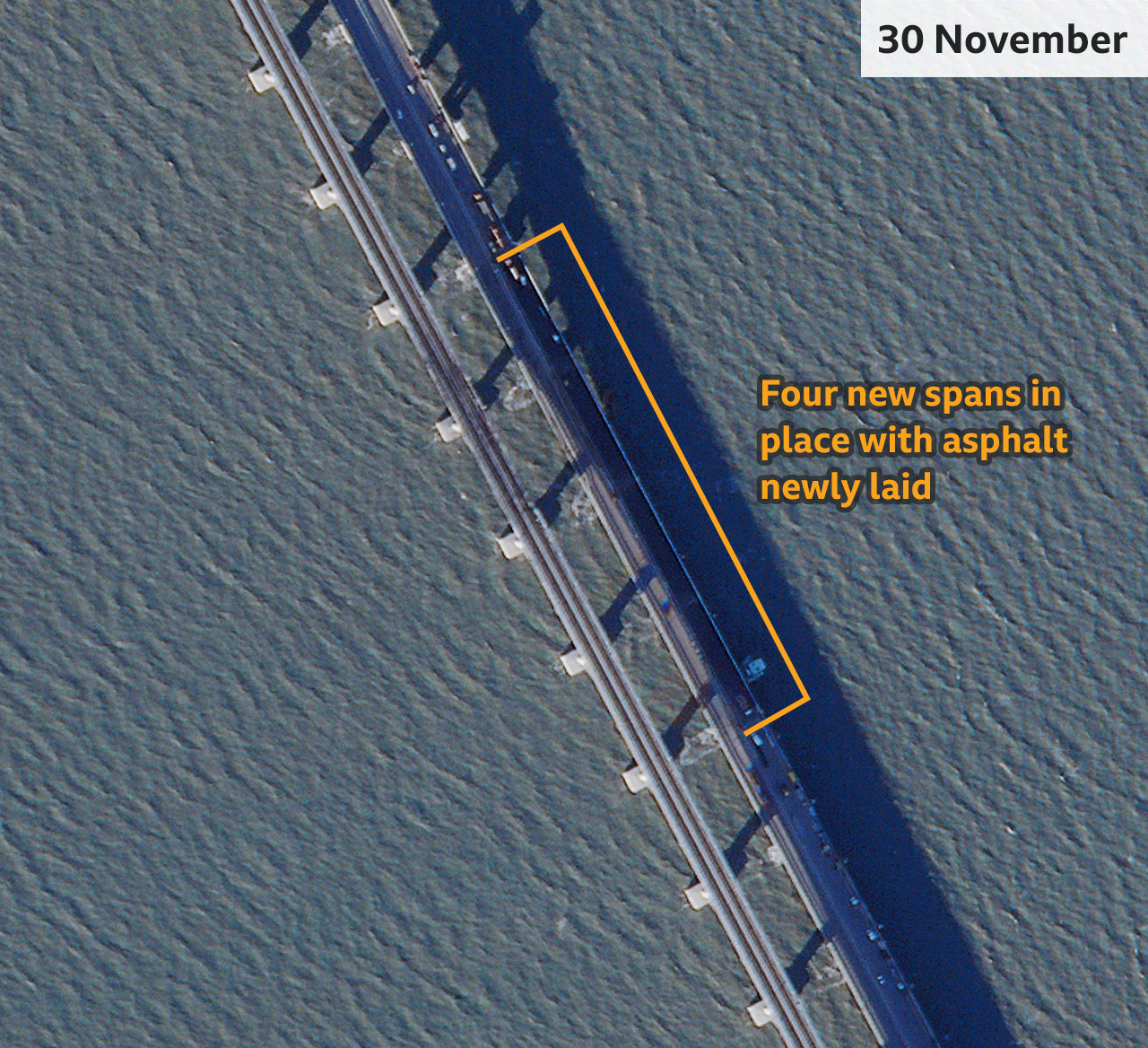Crimea bridge: How Russia is rebuilding its vital link
- Published
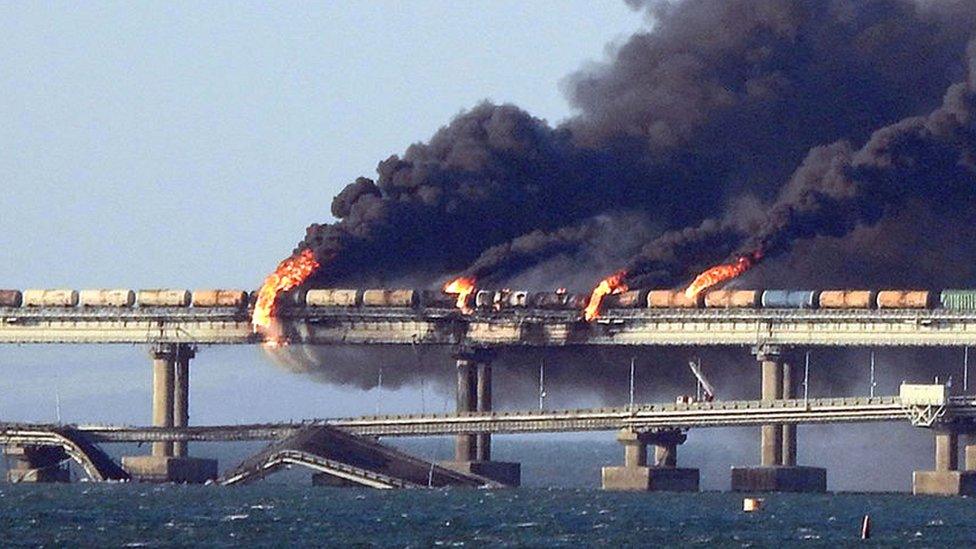
Fire blazing on the rail bridge with the damaged road section below
Satellite images show how a key bridge to the Crimean peninsula, damaged by an explosion in October in mysterious circumstances, has now been largely repaired.
When it was originally opened in 2018, the Crimea bridge - also known as the Kerch Bridge - was hailed by Russian media as "the construction of the century", four years after Moscow illegally annexed Crimea.
The explosion has severely hampered Russia's ability to keep its troops supplied, having to resort to a limited ferry service instead.
It has also been a major embarrassment for President Putin, given the bridge's importance as both a strategic and symbolic project.
How has Russia been rebuilding the bridge?
Repairs to the bridge had been scheduled for completion in July 2023.
Although not yet fully completed, construction appears to be ahead of schedule.
The process of clearing damage and starting repairs began shortly after the explosion on 8 October.
Cranes on barges were floated out to the site to remove four sections of road that had collapsed or broken.
By the end of October, the bridge was ready for new construction.
During November, cloud cover made analysis via satellite images of the reconstruction impossible, but social media posts from Russian sources and regional news stories give further insight into the process.
Images show that pre-made sections of carriageway were carried to the damaged site on top of giant flat-bed transporters - a journey which took seven hours from the Russian coast.
Cranes positioned on the stable sections of bridge then laid them into place.
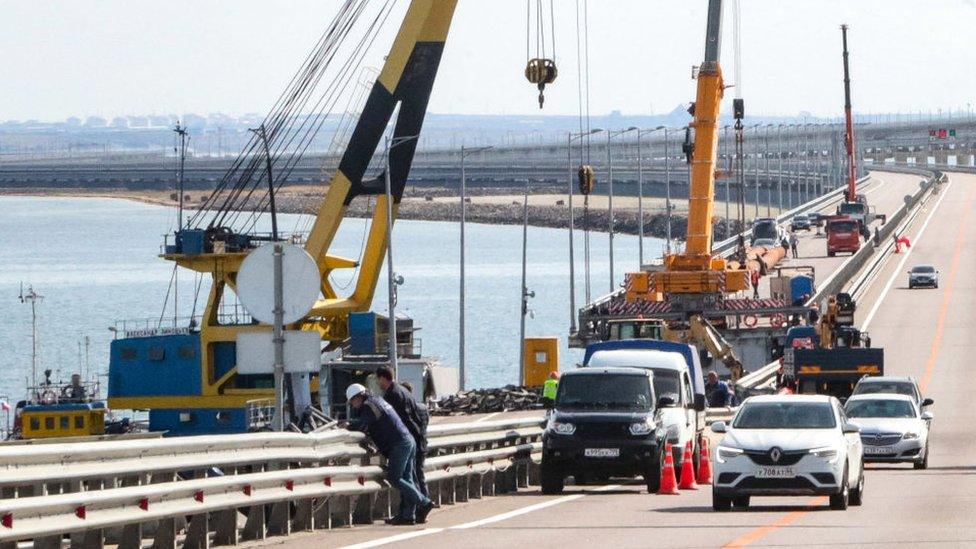
Work began to repair the bridge days after the explosion
Finally, the new sections of carriageway were given an asphalt surface.
"The bridge has certainly been repaired much quicker than the timescales common in civilian engineering projects," says Dr Andrew Barr, a civil and structural engineering researcher.
"But the resource prioritisation involved in restoring a military and political asset changes things significantly, especially in a country at war," he adds.

A Kremlin video which it says shows President Putin driving across the bridge
President Putin made a visit to the bridge on 5 December, and the Kremlin posted a video, external which it says shows him driving a vehicle along the repaired section, being told about the project.
At one point, Mr Putin was told by a worker that traffic had been due to resume on 20 December, but that "accelerated construction" had allowed the section he was on to open sooner than that.
How badly was the bridge damaged?
The bridge carries both road and rail traffic across the Kerch Strait between Russia and the Crimean peninsula, which Russia annexed in 2014.
Satellite images reveal that a blast caused sections of one of the two road carriageways to collapse into the sea, with just part of it visible above water.

Satellite imagery showing the damaged section after the blast in October
The blast also set light to fuel containers on a passing train on the adjacent rail bridge, but that was reopened soon afterwards.
The damaged part of the road bridge was 900ft (274 metres) long.
Three people died in the explosion. The bridge has been closed to heavy road traffic ever since, although some light traffic has been allowed to use it.
The cause of the blast remains a mystery. Russian officials said it was a terrorist act by two men from southern Russia who had been driving a truck across the bridge when the explosion happened.
Other theories suggested the bridge could have been attacked using a boat-launched missile or a maritime drone. But there's been no confirmation on the Ukrainian side of any of these possible explanations.
How important is the Crimean Bridge?
The bridge is the longest in Europe. It's 19km (12-mile) long and spans the Kerch Strait between Russia and Crimea and is the only direct road and rail link between the two.
It cost £2.7bn to build and was seen very much as President Putin's personal project, a vital supply link for the Russian war effort in Ukraine and symbolising a new political connection with Crimea.
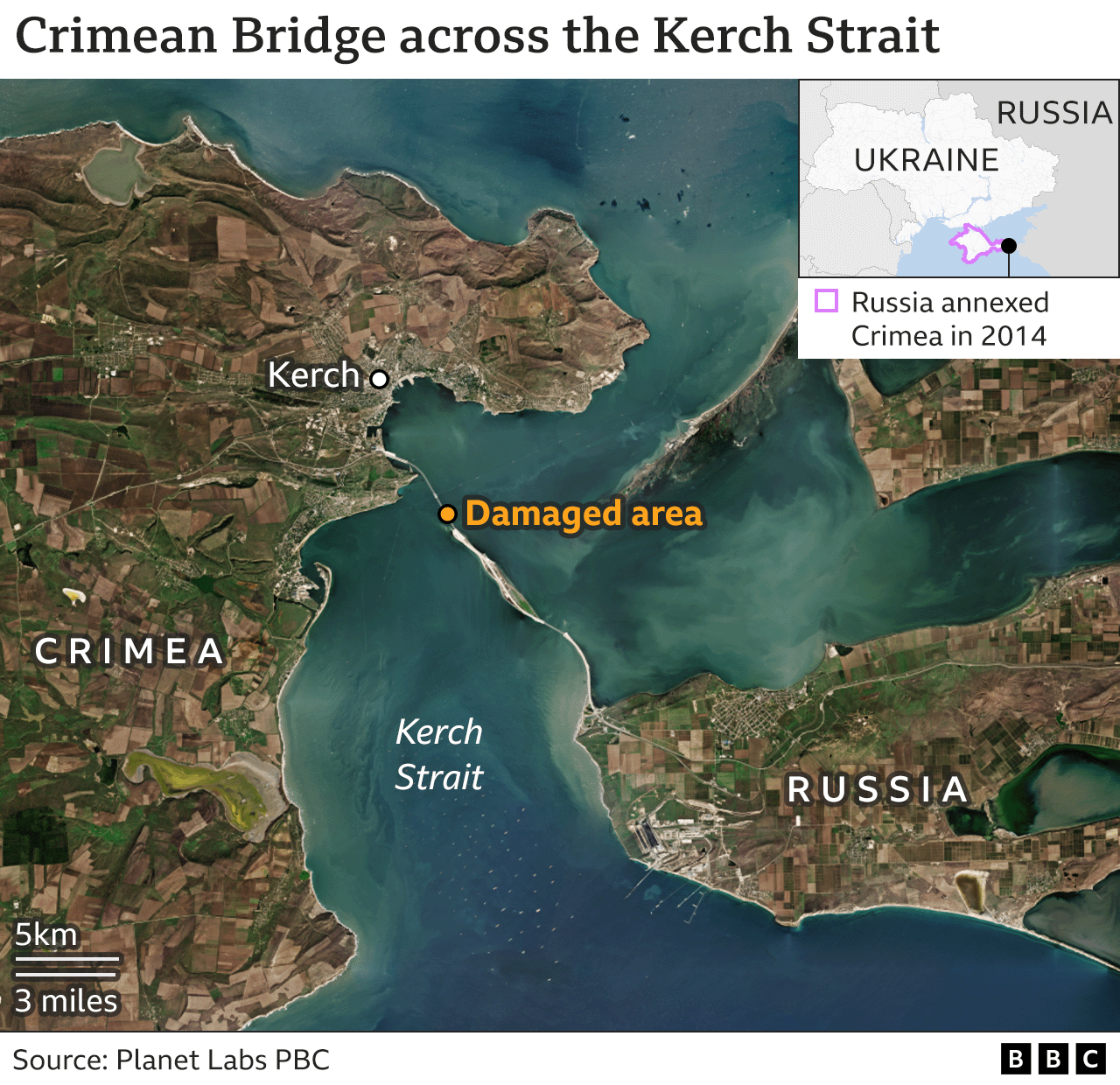
It is crucial for supplying goods such as fuel and food to the civilian population there, and to the naval base at Sevastopol, which is home to Russia's Black Sea fleet.
Since Russia's invasion of Ukraine last February, the bridge has also become a major route for supplying Russian forces in southern Ukraine.
